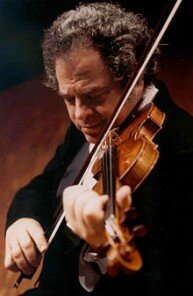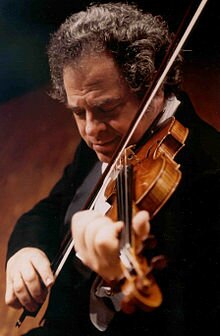Legendary violinist Itzhak Perlman is back in Seattle this week for two concerts with the Seattle Symphony. It’s always inspiring to watch Perlman in action, whether as a violin soloist or conductor. This time, Seattle audiences get to see Perlman in both roles. Last night’s concert featured a grab-bag of favorites including Vivaldi’s The Four Seasons, Mozart’s “Prague” Symphony, and Beethoven’s Symphony No. 7. Perlman and the Symphony will repeat the program tonight.

Despite its ubiquitous presence in classical compilation CDs and car commercials, Vivaldi’s The Four Seasons was a treat with the world’s foremost violinist at the helm. Perlman and the orchestra performed the “Summer” and “Winter” concertos, with Perlman playing the solo part and conducting from the ranks of the first violin section. Both concertos are full of drama. Slow, languid solo melodies provide stark contrast with rapid, buzzing textures that involve the entire string section.
In the fast movements, particular the frantic final movement of “Summer,” Perlman and the orchestra maintained a high level of excitement despite a few rough spots, particularly involving the contrasting timbres of the violins and harpsichord. Perlman’s violin sung out best in the slower movements, especially in the sweet and sorrowful middle movement of “Winter.”
The audience got its first glimpse of Perlman solely in a conducting role with Mozart’s Symphony No. 38, known as the “Prague” Symphony. Perlman’s clear direction brought the orchestra together, particularly in the fine ensemble playing in the fast third movement. Also of note were interesting and unexpected harmonies between the strings and winds that rose to the surface in the slow second movement. Unsurprisingly, Perlman’s conducting occasionally mimed the playing of a violin–only natural for one who has achieved international fame as a concert violinist.
The evening’s performance concluded with Beethoven’s beloved Symphony No. 7. Here Perlman seemed to take a step back as a conductor, letting Beethoven’s writing speak for itself. The result was enthralling, from the somber, stately second movement to the joyous horn calls of the fourth movement.
If last night’s near-capacity crowd was any indication, tickets will likely be scarce for tonight’s performance. Arrive at Benaroya Hall early if you’re hoping to grab a seat.
